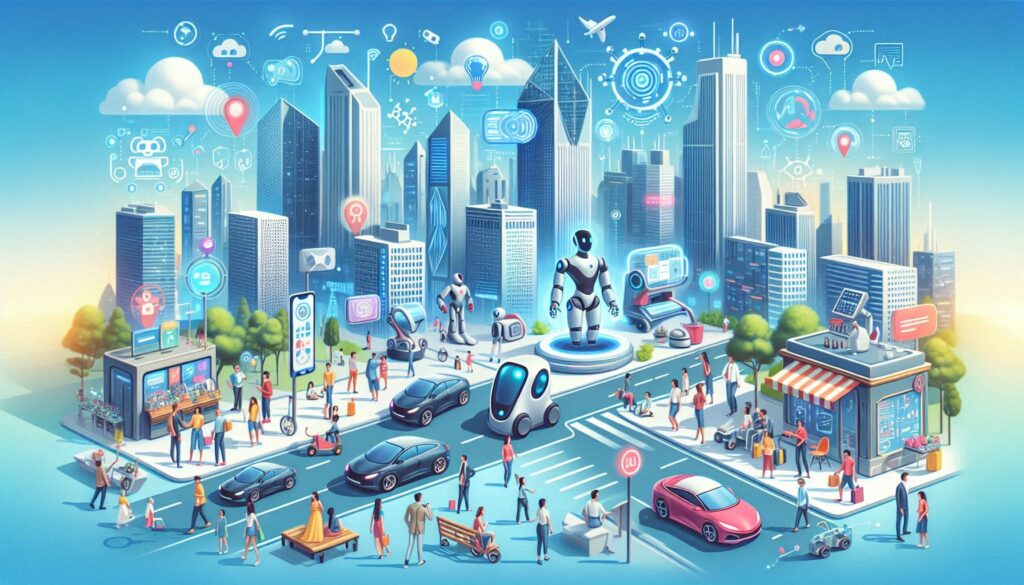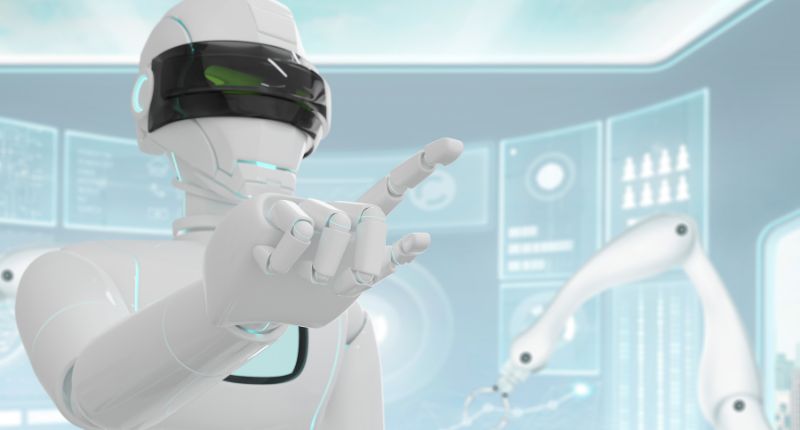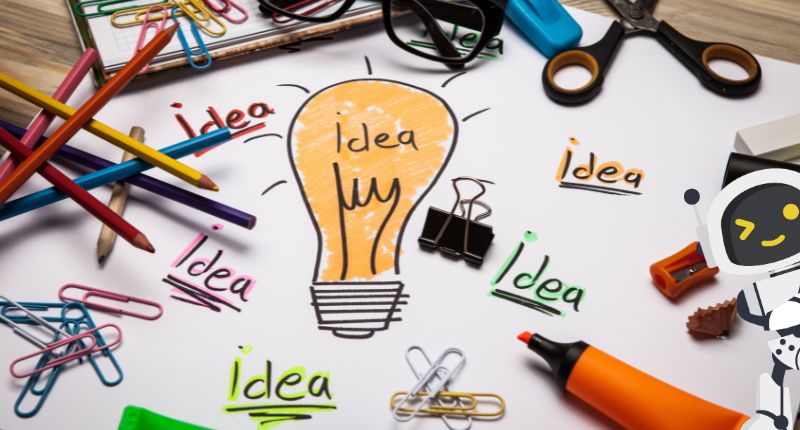Artificial Intelligence (AI) has rapidly evolved over the past few decades, revolutionizing industries and reshaping how we live, work, and interact. By 2030, AI is poised to reach unprecedented levels of sophistication, transforming our daily lives in ways we can barely imagine today. From personalized healthcare to intelligent transportation, the potential of AI is boundless. This blog post explores how AI will reshape our world by 2030, delving into its impact on healthcare, education, transportation, employment, entertainment, and beyond. Let’s explore How AI Will Transform Our Lives.
Artificial intelligence (AI) is no longer a futuristic fantasy. It’s rapidly evolving, poised to revolutionize nearly every aspect of our lives by 2030. Here’s a glimpse into the transformative power of AI in the coming decade. Artificial intelligence is rapidly advancing, poised to revolutionize society in ways we are only beginning to understand. This blog post examines the key areas where AI will have the most significant impact by 2030, from advancements in healthcare and transportation to the evolution of education and the entertainment industry.
1. AI in Healthcare: A New Era of Precision Medicine
Personalized Treatments
By 2030, AI will enable personalized medicine tailored to individual genetic profiles. With advancements in genomics and machine learning algorithms, doctors will be able to predict and prevent diseases before they manifest. AI-powered diagnostic tools will analyze patient data, offering accurate and rapid diagnoses.
Remote Patient Monitoring
Wearable devices integrated with AI will continuously monitor vital signs, alerting patients and healthcare providers to any abnormalities in real time. This will significantly improve chronic disease management and reduce hospital visits.
Drug Discovery
AI is already accelerating drug discovery, and by 2030, it will drastically shorten the time required to develop new medications. Machine learning models will analyze vast datasets to identify potential drug candidates, reducing costs and improving efficacy.
2. AI in Education: Tailored Learning Experiences
Adaptive Learning Platforms
AI will revolutionize education by creating adaptive learning platforms that cater to each student’s unique needs. These systems will identify strengths and weaknesses, offering personalized resources to optimize learning outcomes.
Virtual Tutors
By 2030, virtual tutors powered by AI will provide on-demand assistance to students worldwide. These tutors will be capable of explaining complex concepts in multiple ways, ensuring that every learner comprehends the material.
Breaking Barriers
AI will bridge educational gaps by providing access to quality resources in underserved regions. Language translation tools will enable students to access materials in their native tongues, breaking down linguistic barriers.
3. AI in Transportation: Smarter, Safer Roads
Autonomous Vehicles
Self-driving cars will become commonplace by 2030, drastically reducing traffic accidents caused by human error. AI-powered vehicles will communicate with each other to optimize traffic flow and minimize congestion.
AI-Driven Traffic Management
Cities will implement AI-driven traffic management systems, using real-time data to adjust traffic signals, reduce bottlenecks, and improve public transportation efficiency.
Sustainable Mobility
AI will play a crucial role in developing sustainable transportation solutions, such as optimizing routes for electric vehicles and integrating renewable energy sources into transportation networks.
4. AI in Employment: Redefining the Workforce
Automation of Repetitive Tasks
AI will automate routine and repetitive tasks, allowing employees to focus on higher-value activities that require creativity and critical thinking. This will increase productivity and innovation across industries.
Creation of New Jobs
While AI may replace some jobs, it will also create new opportunities in fields like AI ethics, data annotation, and machine learning development. By 2030, industries will require a workforce skilled in managing and optimizing AI systems.
Remote Work Revolution
AI-powered tools will enhance remote work by providing virtual collaboration platforms, automated scheduling, and advanced communication systems. This will lead to more flexible work environments and improved work-life balance.
5. AI in Entertainment: Immersive Experiences
Personalized Content
Streaming platforms will use AI to curate highly personalized content recommendations. By analyzing viewing habits and preferences, AI will ensure that users discover content tailored to their tastes.
Interactive Storytelling
AI will enable interactive storytelling experiences, allowing users to influence the outcome of movies and games. This will create a new level of engagement and immersion.
AI-Generated Content
By 2030, AI will play a significant role in content creation, generating music, art, and even entire movies. These AI-generated works will push the boundaries of creativity and redefine artistic expression.
6. AI in Everyday Life: Smart Living
Smart Homes
AI will power smart homes equipped with intelligent systems that learn user preferences to optimize energy consumption, security, and convenience. From adjusting thermostats to automating chores, AI will make homes more efficient and comfortable.
Virtual Assistants
Virtual assistants will become more sophisticated, capable of managing complex tasks like planning vacations, managing finances, and even providing emotional support.
Enhanced Shopping Experiences
AI will transform the retail experience by offering personalized shopping recommendations, virtual try-ons, and automated checkout systems, making shopping more convenient and enjoyable.
7. Ethical and Social Implications of AI
Addressing Bias
As AI becomes more prevalent, addressing algorithmic biases will be crucial to ensure fair and equitable outcomes. By 2030, significant strides will be made in creating transparent and unbiased AI systems.
Privacy Concerns
With AI collecting vast amounts of data, safeguarding user privacy will be a top priority. Advanced encryption techniques and stringent regulations will be implemented to protect sensitive information.
Ethical AI Development
Ensuring that AI is developed and used ethically will be paramount. Governments, organizations, and researchers will collaborate to establish guidelines and standards for responsible AI use.
8. Global Collaboration and AI Governance
International Cooperation
By 2030, nations will recognize the need for global collaboration in AI governance. International treaties and agreements will address issues like AI safety, security, and ethical use.
Regulation and Accountability
Governments will implement regulations to ensure that AI systems are accountable and transparent. Regular audits and certifications will become standard practice for AI technologies.
9. The Road Ahead: Challenges and Opportunities
Challenges
- Job Displacement: Managing the transition for workers displaced by automation.
- Ethical Dilemmas: Addressing the ethical implications of AI decision-making.
- Security Risks: Protecting AI systems from cyber threats.
Opportunities
- Economic Growth: AI will drive innovation and economic growth, creating new industries and markets.
- Improved Quality of Life: AI will enhance healthcare, education, and daily living, improving overall quality of life.
- Sustainable Development: AI will play a critical role in addressing global challenges like climate change and resource management.
10. AI in Climate Change Mitigation: A Sustainable Future
Predictive Analytics for Environmental Monitoring
AI will play a pivotal role in combating climate change by analyzing environmental data to predict natural disasters, monitor deforestation, and track carbon emissions. By 2030, these systems will provide governments and organizations with actionable insights to implement sustainable practices.
Smart Agriculture
AI-powered precision agriculture will optimize water usage, monitor crop health, and predict yields. These innovations will ensure food security and minimize environmental impact.
Renewable Energy Integration
AI will enhance the efficiency of renewable energy sources like solar and wind by forecasting energy production and demand. Smart grids will utilize AI to distribute energy more effectively, reducing waste and costs.
11. AI in Space Exploration: Expanding Horizons
Autonomous Spacecraft
By 2030, AI will enable autonomous spacecraft capable of exploring distant planets and moons without human intervention. These advancements will revolutionize our understanding of the universe.
Space Resource Utilization
AI will assist in identifying and utilizing extraterrestrial resources, such as mining asteroids for rare minerals. This will open new frontiers for industry and innovation.
Enhanced Earth Observation
AI will refine satellite imaging, providing unprecedented insights into climate patterns, urban development, and natural resource management.
12. AI and Human-Machine Collaboration: The Symbiotic Future
Enhancing Creativity
AI tools will augment human creativity by generating ideas, designs, and solutions across industries. This collaboration will lead to breakthroughs in art, science, and engineering.
Augmented Intelligence
Instead of replacing humans, AI will enhance our cognitive abilities, enabling us to process information faster and make better decisions.
Human-Centric AI Design
By 2030, AI systems will be designed with a focus on enhancing human well-being, ensuring that technology serves humanity’s best interests.
13. Preparing for the AI Future: What You Can Do Today
Lifelong Learning
As AI continues to evolve, adapting to new technologies will be crucial. Individuals should embrace lifelong learning to stay relevant in an AI-driven world.
Ethical Advocacy
Get involved in discussions about AI ethics and governance. Advocate for policies that promote transparency, accountability, and fairness in AI development.
Building Resilience
Develop skills that complement AI, such as emotional intelligence, problem-solving, and adaptability. These human-centric abilities will remain invaluable in the workforce.
Looking for more? How AI Will Transform Our Lives
Artificial Intelligence (AI) is no longer just a futuristic concept reserved for science fiction; it has become an integral part of our everyday lives. From voice assistants like Siri and Alexa to sophisticated algorithms powering recommendations on Netflix and Amazon, AI is everywhere. However, the impact we see today is just the tip of the iceberg. By 2030, AI will have transformed our lives in ways we are only beginning to imagine. In this blog post, we’ll explore how AI is expected to evolve and reshape industries, society, and the way we live.
1. Healthcare Revolution
AI is already making strides in the healthcare industry, but by 2030, its impact will be profound. Here’s how:
a. Early Disease Detection
AI-powered tools will analyze medical data, including genetic information, imaging scans, and patient history, to detect diseases earlier than ever before. For instance, AI algorithms will help identify cancers at a stage when they are still curable.
b. Personalized Medicine
By 2030, treatments will be tailored to individual patients using AI. Personalized medicine, driven by AI, will analyze a person’s unique genetic makeup and lifestyle to suggest optimal treatment plans, significantly improving recovery rates.
c. Robot-Assisted Surgeries
Surgical robots, enhanced by AI, will perform complex procedures with unmatched precision. These advancements will reduce recovery times and improve surgical outcomes.
2. Transportation Evolution
Transportation is poised to undergo a seismic shift with AI at the wheel—quite literally.
a. Autonomous Vehicles
By 2030, self-driving cars will be commonplace. Companies like Tesla, Waymo, and others are already leading the charge. These vehicles will reduce road accidents, optimize traffic flow, and even eliminate the need for traditional car ownership.
b. AI-Powered Traffic Management
AI will analyze traffic patterns in real-time, reducing congestion and improving commute times in urban areas. Smart cities will use AI to manage public transportation efficiently.
c. Delivery Drones and Robots
AI-driven drones and robots will handle last-mile deliveries, making e-commerce faster and more reliable. Expect your online orders to arrive within hours, not days.
3. Education Transformation
Education will become more personalized and accessible with AI. Here’s what to expect:
a. Personalized Learning
AI will create customized learning experiences based on a student’s strengths and weaknesses. Adaptive learning platforms will cater to individual needs, ensuring no one is left behind.
b. Virtual Tutors
AI-powered virtual tutors will provide 24/7 support to students, answering questions and explaining concepts in ways that are easy to understand.
c. Global Accessibility
AI will bridge educational gaps by offering quality content in multiple languages and formats, making learning accessible to people in remote areas.
4. Workforce and Employment
AI will undoubtedly reshape the workforce, leading to both opportunities and challenges.
a. Automation of Routine Tasks
AI will take over repetitive tasks, freeing up human workers to focus on creative and strategic roles. Industries like manufacturing, logistics, and customer service will see significant automation.
b. Creation of New Jobs
While AI will automate certain roles, it will also create new job categories. Roles like AI ethicists, data annotators, and machine learning engineers will be in high demand.
c. Continuous Upskilling
To stay relevant, workers will need to continuously upskill. AI-powered platforms will offer personalized training programs to help individuals keep pace with technological advancements.
5. Smart Homes and Everyday Life
AI will redefine convenience and efficiency in our homes.
a. Intelligent Assistants
By 2030, AI assistants will evolve into full-fledged digital companions. They will manage schedules, control smart devices, and even provide emotional support.
b. Energy Efficiency
AI will optimize energy consumption, reducing costs and environmental impact. Smart grids and appliances will work in harmony to ensure sustainable living.
c. Enhanced Security
AI-powered home security systems will detect and deter intruders more effectively, offering real-time alerts and surveillance.
6. Entertainment and Creativity
AI will play a pivotal role in reshaping the entertainment industry and fostering creativity.
a. Immersive Experiences
Virtual and augmented reality, powered by AI, will create hyper-immersive experiences in gaming, movies, and live events.
b. Content Creation
AI will assist in generating music, art, and stories, enabling creators to bring their visions to life faster. Tools like OpenAI’s DALL-E and ChatGPT are early examples of this potential.
c. Personalized Entertainment
Streaming platforms will leverage AI to deliver highly personalized content, ensuring users always find something they enjoy.
7. Ethics and Privacy Concerns
The rise of AI also brings ethical dilemmas and privacy challenges.
a. Bias in Algorithms
Efforts must be made to eliminate biases in AI algorithms to ensure fair and equitable outcomes.
b. Data Privacy
With AI relying heavily on data, protecting user privacy will be paramount. Governments and organizations will need to implement robust data protection laws.
c. Accountability
As AI systems make decisions, defining accountability in cases of errors or misuse will be critical.
8. AI in Environmental Conservation
AI will contribute significantly to addressing environmental challenges.
a. Climate Modeling
AI will enhance climate models, providing accurate predictions and aiding in disaster preparedness.
b. Wildlife Protection
AI-powered drones and cameras will monitor endangered species, deterring poaching and preserving biodiversity.
c. Sustainable Practices
From optimizing supply chains to reducing waste, AI will enable more sustainable practices across industries.
9. Human-AI Collaboration
AI will not replace humans but rather collaborate with them to achieve remarkable feats.
a. Co-Creation
In fields like medicine, research, and art, humans and AI will work together to push boundaries.
b. Accessibility
AI will empower individuals with disabilities, providing tools for communication, mobility, and learning.
c. Enhanced Decision-Making
AI will assist in making informed decisions by analyzing vast datasets and identifying trends.
Conclusion
By 2030, AI will have reshaped every facet of our lives, offering unprecedented opportunities while posing new challenges. From revolutionizing healthcare and education to transforming transportation and entertainment, the potential of AI is limitless. However, it’s crucial to navigate this journey responsibly, addressing ethical concerns and ensuring inclusivity.
As we move towards an AI-driven future, one thing is certain: the world of 2030 will be vastly different from today, offering possibilities we can only dream of. The key to harnessing AI’s power lies in balancing innovation with responsibility, ensuring that this transformative technology benefits all of humanity.
SEO Keywords: Artificial Intelligence 2030, AI future trends, AI in healthcare, autonomous vehicles, personalized learning, smart homes, AI ethical concerns, AI and climate change, AI job market, AI entertainment.
Meta Description: Discover how AI will transform our lives by 2030, from revolutionizing healthcare and education to reshaping transportation, entertainment, and beyond. Explore the opportunities and challenges of an AI-driven future.
Want to make your life easier? Check out our list of the Top 10 AI Tools to Automate Daily Tasks and transform your workflow. Learn more.


